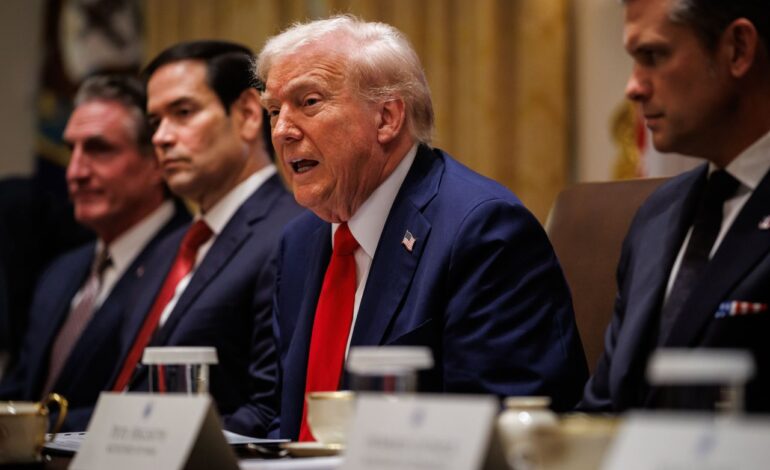Trump Prioritizes Israel’s Security in New Gaza Peace Initiative

Former President Donald Trump has unveiled a new peace initiative aimed at addressing the longstanding conflict in Gaza, significantly shifting the diplomatic approach taken by the previous administration. This plan prioritizes Israel’s security, a notable departure from the strategy employed by President Joe Biden.
The announcement, made on March 15, 2024, highlights Trump’s intention to reshape the U.S. role in Middle Eastern diplomacy. The plan includes a series of security measures designed to bolster Israel’s defense capabilities while seeking to establish a framework for renewed dialogue with Palestinian leaders. Trump’s team has emphasized the importance of a strong Israel as a stabilizing force in the region.
The initiative outlines specific commitments from Israel to enhance cooperation with the Palestinian Authority, aiming to foster economic development in Gaza. In return, the plan proposes increased military aid for Israel, expected to reach $3 billion annually, maintaining the U.S. as Israel’s primary ally in defense matters.
Details of the Peace Plan
Trump’s peace deal introduces several key components that are intended to create a lasting solution. Initially, it calls for a ceasefire to be monitored by the U.S. State Department and key Arab nations, allowing humanitarian aid to flow into Gaza. The proposal also includes provisions for joint security operations, focusing on intelligence sharing between Israeli and Palestinian forces.
While the plan has been met with cautious optimism by some Israeli officials, it has drawn criticism from various Palestinian factions. Many view the emphasis on Israeli security as undermining their aspirations for statehood and self-determination. The Arab League has expressed concern that the framework does not adequately address core issues, such as the status of Jerusalem and the right of return for Palestinian refugees.
International Reactions
International responses have been mixed. Supporters of the initiative argue that prioritizing Israel’s security could lead to greater stability in the region, while detractors fear that it may exacerbate existing tensions. The Biden administration has not formally commented on Trump’s plan, although officials have indicated a desire to continue promoting a balanced approach to peace negotiations.
Political analysts suggest that the success of Trump’s initiative hinges on the ability to foster trust between the involved parties. As March 2024 unfolds, attention will turn to the reactions from both Israeli and Palestinian leadership, as well as the broader international community.
The implications of this new approach could reshape U.S. foreign policy in the region, impacting relations with both Israel and Arab nations. As the geopolitical landscape evolves, the effectiveness of Trump’s strategy will be closely scrutinized by diplomats and citizens alike.






